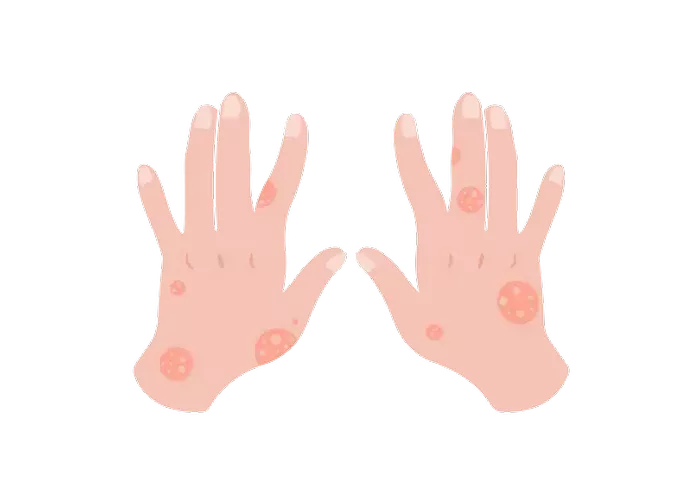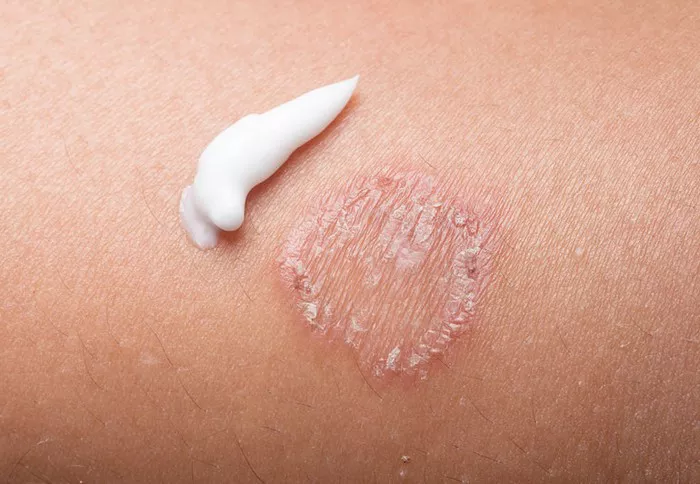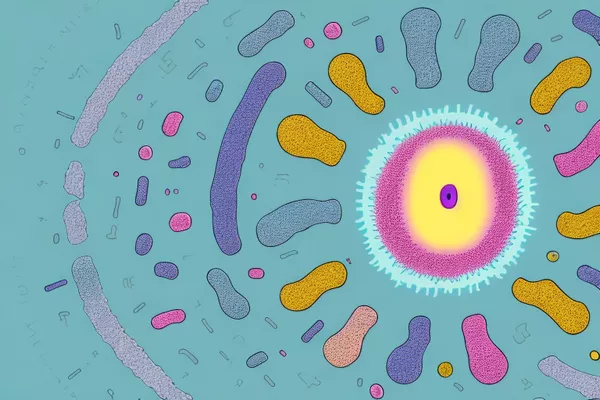Eczema is a common skin condition that causes irritation, redness, itching, and inflammation. While the condition itself can be uncomfortable and distressing, one of the biggest challenges people face after an eczema flare-up is the discoloration or dark spots that often remain on the skin after the rash heals. These discolorations, also known as post-inflammatory hyperpigmentation (PIH), can be just as frustrating as the eczema itself. Fortunately, there are several ways to help clear up eczema discoloration and restore your skin to a more even tone.
In this article, we will discuss the causes of eczema discoloration, tips on how to prevent it, and various treatment options to help reduce and clear up these spots.
What Causes Eczema Discoloration?
Eczema discoloration is often a result of the skin’s healing process. When you experience a flare-up of eczema, the skin becomes inflamed, and the body’s immune system responds by increasing the production of melanin, the pigment responsible for skin color. As the eczema heals, the skin may remain darker (hyperpigmented) or lighter (hypopigmented) than the surrounding skin. This is especially true in people with darker skin tones, who may notice dark spots where the eczema once was.
The discoloration typically appears after the eczema rash has subsided, and it can persist for weeks or even months. The skin’s healing process can be further complicated by scratching or rubbing, which can lead to scarring and prolonged discoloration.
Preventing Eczema Discoloration
The best way to deal with eczema discoloration is to prevent it from happening in the first place. While it’s not always possible to avoid discoloration entirely, there are several ways you can reduce the chances of developing dark or light spots.
Manage Eczema Flare-ups Effectively Keeping your eczema under control is the most effective way to prevent discoloration. The less intense the flare-up, the less likely you are to develop discoloration after the rash subsides. This means adhering to a good skincare routine and using medications as prescribed by your healthcare provider.
Avoid Scratching Scratching eczema is one of the main contributors to skin damage and discoloration. It can break the skin, which may lead to scarring and hyperpigmentation. Keep your nails trimmed and consider wearing cotton gloves at night to reduce the urge to scratch while sleeping.
Use Gentle Skincare Products Harsh soaps, fragrances, and skincare products can further irritate the skin and exacerbate eczema flare-ups. Stick to gentle, fragrance-free moisturizers and cleansers that are specifically designed for sensitive skin.
Hydrate and Moisturize Regularly Dry skin is more prone to eczema flare-ups and skin irritation. Regular moisturizing is key to keeping your skin hydrated and preventing eczema from becoming worse. Look for thick, emollient-rich creams and ointments that help lock in moisture and protect the skin’s barrier.
Treatment Options for Eczema Discoloration
If you already have eczema discoloration, there are several treatment options available to help clear up the dark spots and promote a more even skin tone.
1. Topical Treatments for Hyperpigmentation
Topical treatments are one of the most effective ways to reduce the appearance of discoloration after an eczema flare-up. These treatments target the overproduction of melanin and can help fade dark spots over time.
Hydrocortisone Cream Hydrocortisone is a mild steroid cream that can be helpful in reducing inflammation and treating eczema flare-ups. If applied after the rash has healed, it may also help reduce discoloration. However, it should only be used for short periods, as long-term use of steroids can thin the skin.
Retinoids (Vitamin A) Retinoids, such as tretinoin or adapalene, are derived from vitamin A and are known for their ability to accelerate cell turnover and reduce hyperpigmentation. By increasing the rate at which your skin sheds its dead cells, retinoids can help fade dark spots left by eczema. However, retinoids can be irritating to sensitive skin, so it’s important to start slowly and use them in combination with moisturizers.
Hydroquinone Hydroquinone is a skin-lightening agent that can be used to fade dark spots. It works by inhibiting the enzyme responsible for melanin production. However, hydroquinone should be used under the guidance of a dermatologist, as it may cause irritation in some people. It’s generally recommended for short-term use.
Vitamin C Vitamin C is an antioxidant that brightens the skin and helps reduce the appearance of hyperpigmentation. It inhibits melanin production and promotes collagen production, which can aid in skin healing. Look for serums or creams that contain stabilized forms of vitamin C, such as ascorbic acid or ascorbyl palmitate.
Alpha Hydroxy Acids (AHAs) AHAs, such as glycolic acid and lactic acid, help exfoliate the skin and encourage the turnover of skin cells. By removing dead skin cells, AHAs can help lighten dark spots and even out skin tone. These acids can also improve the texture of the skin, making it smoother and more radiant.
Niacinamide Niacinamide, also known as vitamin B3, is a powerful ingredient known for its ability to brighten the skin and reduce hyperpigmentation. It works by inhibiting the transfer of melanin to the skin’s surface. Niacinamide is gentle and suitable for sensitive skin, making it a great option for people with eczema.
2. Sun Protection
One of the most important steps in treating eczema discoloration is protecting your skin from the sun. UV exposure can worsen hyperpigmentation and make dark spots more pronounced. Always wear sunscreen with broad-spectrum protection (SPF 30 or higher) to protect the healing skin and prevent further discoloration.
If you’re using skin-lightening treatments like hydroquinone or retinoids, these can make your skin more sensitive to the sun, so sun protection is especially important.
3. Professional Treatments
If at-home treatments aren’t providing the results you’re looking for, you may want to consider professional treatments. These are typically more intensive and should only be performed by a dermatologist or licensed practitioner.
Chemical Peels Chemical peels involve applying a solution to the skin that exfoliates the outer layers. This can help fade discoloration by removing the top layer of skin cells and revealing fresh, new skin underneath. There are different types of chemical peels, from mild glycolic acid peels to stronger TCA (trichloroacetic acid) peels. Chemical peels can be effective, but they can also cause irritation, so it’s important to consult with a dermatologist before undergoing this treatment.
Laser Treatments Laser therapy, such as fractional lasers or pulsed-dye lasers, can be effective for treating stubborn pigmentation and scarring. These lasers target the pigmentation directly and help to break it down. Laser treatments can be expensive and may require multiple sessions to achieve desired results, but they are highly effective for clearing up discoloration.
Microneedling Microneedling involves using tiny needles to create micro-injuries in the skin. This stimulates collagen production and encourages the skin to regenerate, which can help reduce hyperpigmentation and improve skin texture. Microneedling is best performed by a trained professional, as improper technique can worsen scarring.
4. Patience and Consistency
Clearing up eczema discoloration takes time, and it’s important to be patient with your skin. While treatments like topical creams and professional procedures can help fade dark spots, results are typically gradual. Be consistent with your skincare routine and give your skin time to heal.
5. Avoid Irritating Ingredients
If you have eczema-prone skin, it’s important to avoid ingredients that can irritate the skin and worsen eczema. Stay away from alcohol-based toners, harsh scrubs, and fragrances, as these can all trigger flare-ups and lead to further discoloration. Stick to gentle, calming ingredients like aloe vera, chamomile, and ceramides.
Conclusion
Eczema discoloration can be frustrating, but with the right treatment plan, you can significantly reduce dark spots and restore a more even skin tone. Prevention is key, so make sure to manage your eczema flare-ups, avoid scratching, and use gentle skincare products. If discoloration does occur, there are several effective treatments available, including topical creams, sun protection, and professional procedures.
Be patient, as healing takes time, and always consult with a dermatologist if you’re unsure about which treatments are best for your skin. With consistent care and the right approach, you can clear up eczema discoloration and enjoy healthier, more radiant skin.
Related topics



























